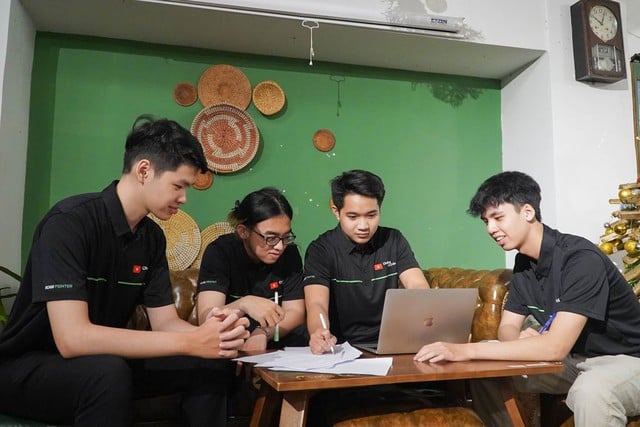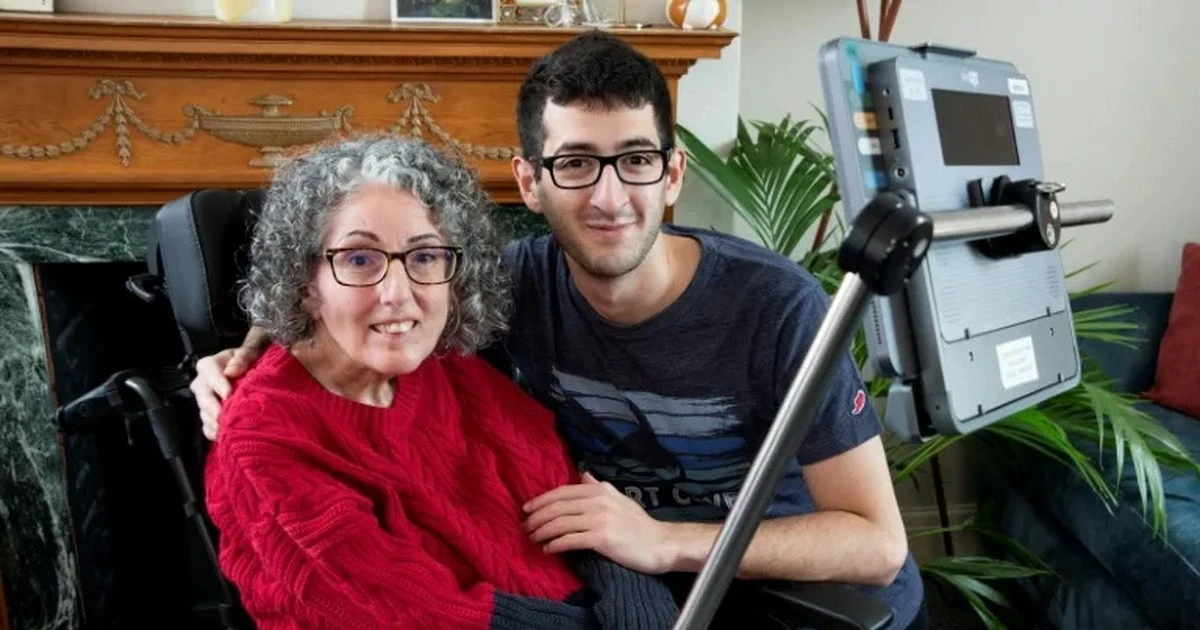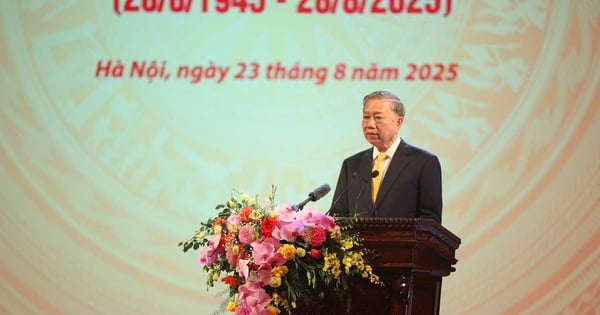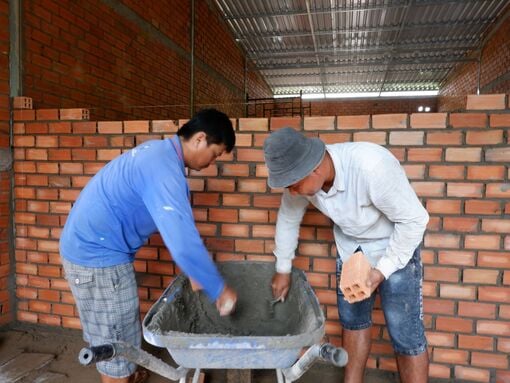A group of four students from Swinburne University Vietnam have successfully completed research and testing of an artificial intelligence (AI) tool capable of identifying and filtering malicious and fake websites in just a few seconds.
From idea to action
Le Nguyen Viet Cuong, the student group leader, said that group members have recently noticed the emergence of many increasingly sophisticated phishing websites, while current solutions that rely on human factors are not enough to prevent them.
Therefore, a group of 4 students created the website https://ai.chongluadao.vn/, which can analyze directly from the website that users are viewing to evaluate the safety. "Applying AI and analysis, the group can know how to scam, provide information to users to raise awareness for users" - Cuong introduced.
According to Truong Duc Sang, a member of the team, the team used popular AI models available on the market such as ChatGPT, Gemini, Claude, Grok, Deepseek... After analyzing and comparing the results of the models, operating costs, evaluating accuracy..., the team chose the best and most suitable technical application to implement the project.
A group of four students at Swinburne University Vietnam researched an artificial intelligence application that can identify and filter malicious websites in just a few seconds. Photo: DUY PHU
Another member, student Nguyen Van Huy Quang, pointed out that the current malicious and fraudulent website filtering applications on the market use information that the provider has already collected from the data warehouse, not the direct content from the website that the user is viewing. "Using AI analysis can help users identify malicious websites, and recognize how dangerous that website is in real time," Quang explained.
Members of the team introducing this application can easily access the website, just need internet. Users can provide the URL of a website suspected of being fraudulent, then AI can analyze and check immediately.
Community Project
Studying AI and software, young students believe that to successfully implement a project, knowledge learned at school is not enough, but more importantly, determination, self-study, and knowledge seeking are essential.
A member of the group, student Nguyen Vinh Khang, expressed that this is a community project, so the group hopes to widely disseminate it to users, helping to increase warnings to the community about the risk of encountering fake websites, malware, being scammed and losing data or assets. At the same time, the group also hopes to receive support from competent authorities to promptly prevent fraudulent websites before they are spread.
Speaking more about the implementation process, Duc Sang said the biggest difficulty was that the project used large AI models and language models that had only been around for 1-2 years. "With previous projects and predecessors, the obstacle was that the documentation was very limited. The team had to explore, research, and experiment many times, and not every time the results were as expected, so it was quite time-consuming," Duc Sang recalled.
For team leader Le Nguyen Viet Cuong, the most difficult part is getting data, because a lot of data is needed to train AI, while information and data on the internet are only at a relative level.
"Because we know that no data source is perfect, the members have to manually enter and edit data. After entering the data, waiting for the AI to return the results is also a time of both excitement and nervousness. Large data can take all day to run, after the results are out, we continue to test. There are times when we think we have succeeded but the results are not accurate. Although disappointed, the whole team is determined to find a way," Cuong said.
Accuracy up to 98%
Cybersecurity expert Ngo Minh Hieu, Director of the Chongluadao.vn project, said that at the end of 2024, while teaching cyber security at Swinburne University Vietnam, he discovered a group of students who were enthusiastic and quick to learn about AI applications, so they gathered to discuss their ideas. The malicious website filtering tool was developed by the group of students with the knowledge and experience of the members of the Chongluadao.vn project, with an accuracy of more than 98%.
The project's "sponsor" commented that this tool helps detect fraudulent websites very early, even before there is a database. In addition, this tool has a friendly interface, which can be integrated into the interface of many parties.
"We hope that this product can be used by people, businesses, and large corporations. We also hope that the students in the research group will become the F2 generation of the Chongluadao.vn project" - Mr. Hieu expressed.
Source: https://nld.com.vn/ung-dung-ai-de-loc-website-lua-dao-196250422215400349.htm




![[Photo] General Secretary To Lam attends the 80th Anniversary of the Cultural Sector's Traditional Day](https://vstatic.vietnam.vn/vietnam/resource/IMAGE/2025/8/23/7a88e6b58502490aa153adf8f0eec2b2)




































































































Comment (0)